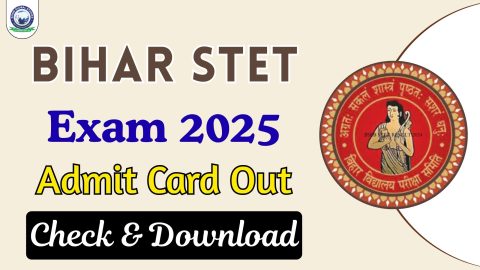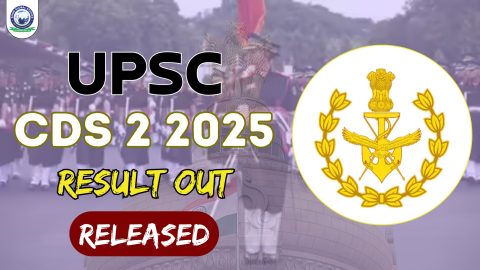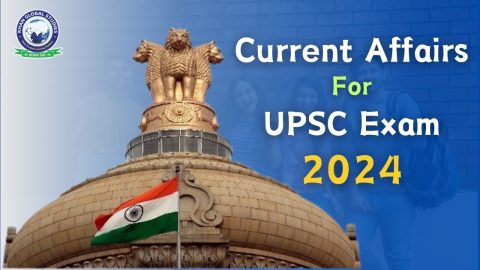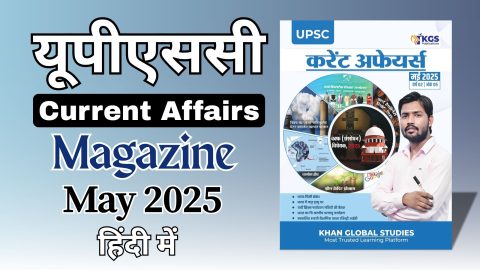When preparing for the UPSC (Union Public Service Commission) exam, staying updated with current affairs is non-negotiable. The exam demands a thorough understanding of national and international events, along with key developments across various sectors. Current affairs not only form a significant part of the Prelims and Mains but also play a crucial role in the Interview stage.
In this post, we’ll break down the types of current affairs you need to focus on and how they can impact your preparation.
Why Current Affairs Matter for UPSC
- Relevance Across Papers: Current affairs are integral to General Studies papers, Essay writing, and even optional subjects.
- Dynamic Nature of the Exam: UPSC tests your ability to connect static knowledge with real-world events.
- Holistic Understanding: Staying updated helps you develop a well-rounded perspective on issues, which is crucial for the Mains and Interview stages.
Prepare the Different Types of Current Affairs for UPSC
1. National Current Affairs
These cover events and developments within India and are often the most critical for UPSC preparation.
Key Areas to Focus On:
- Political Developments: Elections, constitutional amendments, and major policy decisions.
- Government Schemes: New initiatives like PM Gati Shakti, Jal Jeevan Mission, and their impacts.
- Social Issues: Topics like healthcare, education, poverty, and gender equality.
- Economic Trends: GDP growth, inflation, and government measures to tackle economic challenges.
- Environmental Challenges: Policies addressing climate change, pollution, and conservation efforts.
Why It’s Important: Questions often test your understanding of how these developments impact society and governance.
2. International Current Affairs
Understanding global events and their implications on India is crucial for topics like international relations and diplomacy.
Important Topics:
- India’s Foreign Policy: Relations with neighbors (e.g., India-China, India-Pakistan) and global powers (e.g., USA, Russia).
- Global Organizations: India’s role in the UN, WHO, WTO, and other international bodies.
- International Treaties: Climate agreements like the Paris Accord, trade pacts, and defense collaborations.
- Global Conflicts: Wars, peacekeeping efforts, and their impact on India’s security and economy.
Why It’s Important: These topics are frequently asked in the Mains and Interview stages, especially in the context of India’s global standing.
3. Science and Technology
With rapid advancements in technology, this section has gained prominence in recent years.
Focus Areas:
- Innovations: Developments in AI, space technology (e.g., Chandrayaan missions), and renewable energy.
- Health: Medical breakthroughs, pandemics, and vaccine development.
- Government Initiatives: Programs like Digital India, Atal Innovation Mission, and Make in India.
Why It’s Important: Questions often test your ability to link technological advancements with societal benefits.
4. Environmental and Ecological Affairs
With growing concerns over climate change and sustainability, this section is vital for UPSC.
Key Topics:
- Climate Change: Global warming, carbon emissions, and India’s commitments under international agreements.
- Natural Disasters: Cyclones, floods, and their management.
- Sustainable Development: Government policies promoting green energy and conservation.
- Biodiversity: Efforts to protect endangered species and ecosystems.
Why It’s Important: Environmental issues are a recurring theme in both Prelims and Mains.
5. Economic Affairs
India’s economic performance and policies are central to shaping national and global strategies.
Important Topics:
- Economic Indicators: GDP, inflation, unemployment, and fiscal deficit.
- Union Budget: Key highlights, allocations, and reforms.
- Banking and Finance: RBI policies, banking reforms, and digital payments.
- Global Trade: India’s trade relations and participation in global economic forums.
Why It’s Important: Economic affairs are tested in both the General Studies papers and the Interview stage.
6. Defense and Security Affairs
National security is a critical area, especially in the context of India’s geopolitical challenges.
Key Areas:
- Defense Policies: Modernization of armed forces, defense budgets, and strategies.
- Border Security: Updates on border disputes and measures to strengthen security.
- Cybersecurity: Threats and government initiatives to tackle them.
- Defense Collaborations: Agreements with countries like the USA, Russia, and Israel.
Why It’s Important: Security-related questions often appear in the Mains and Interview stages.
7. Social Justice and Welfare
This section focuses on issues related to marginalized communities and welfare programs.
Topics to Cover:
- Government Schemes: Initiatives like PM-KISAN, Ayushman Bharat, and MGNREGA.
- Gender Equality: Policies and reforms promoting women’s rights.
- Poverty Alleviation: Programs aimed at reducing poverty and improving living standards.
Why It’s Important: These topics are directly linked to General Studies papers and require a deep understanding of government policies.
8. Cultural Affairs
India’s rich cultural heritage is an important aspect of the UPSC syllabus.
Key Points:
- Historical Monuments: UNESCO World Heritage Sites and their significance.
- Festivals and Traditions: Regional and national festivals.
- Arts and Literature: Contributions of famous artists and writers.
Why It’s Important: Cultural questions often appear in the Prelims and Essay paper.
Tips for Effective Current Affairs Preparation
- Daily News: Read newspapers like The Hindu or Indian Express and follow reliable news portals.
- Monthly Magazines: Use magazines like Yojana and Kurukshetra for consolidated updates.
- Notes Making: Maintain concise notes for quick revision.
- Quizzes and Mock Tests: Regularly test your knowledge to identify gaps.
- Link Static and Dynamic: Relate current affairs to static topics for a better understanding.
Conclusion
Mastering current affairs is a game-changer for UPSC preparation. By focusing on the types mentioned above and following a structured approach, you can significantly enhance your chances of success. Remember, consistency is key; stay updated daily, revise regularly, and practice diligently.
Good luck with your UPSC journey









